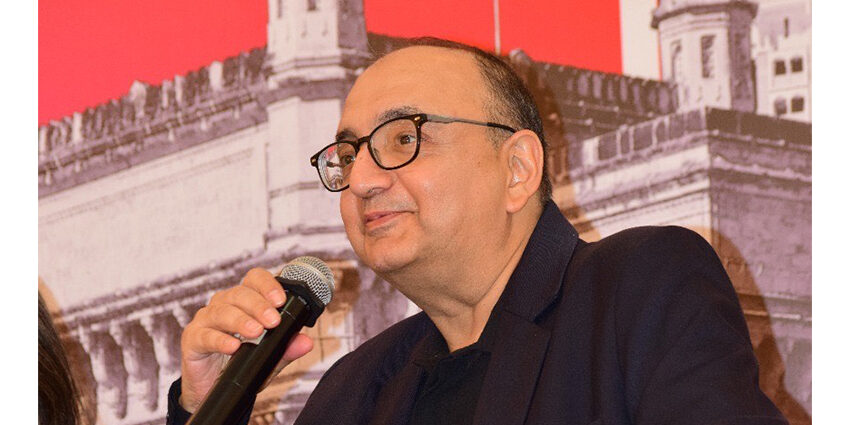Viveck Vaswani is currently the Dean of the School of Contemporary Media at Pearl Academy. He is also a renowned film and television producer. He has been working in the media and entertainment industry since 1982. He is an actor on stage, on television and in films. Viveck also boasts of being a screenwriter, a production designer, a Social Media influencer, a teacher and mentor to many starters and start-ups in the industry from Shah Rukh Khan to BookMyShow.
His romance with cinema started when he was just five years old, the day when he experienced the glamour and fun of a film on a 70-mm screen. At the age of 18, Vaswani proposed the idea of being into films to his father and said that almost all the people in India watch movies about 50 times a year.
After his regular quests and discussions with the people who breathe and live in the world of cinema like the popcorn sellers, the ticket sellers etc., he distilled three major rules for the ones who want to be in the profession of cinema. Firstly, they need to translate their passion into knowledge. The next one is about talking with cinema stalwarts. “If one can’t talk cinema with cinema professionals, the person can’t work with cinema professionals”, said Vaswani.
Vaswani further talked about his understandings in the field of cinema. He stated that when he used to visit cinema halls, he learnt about the entire history, the folklore and the richness of the tapestry of the talkies from those popcorn sellers and the projectionists. Armed with all this knowledge, he realised that he does not really have to act as an actor and give performances in order to make money. It was not about the film but it was about the audiences. Therefore, the script is something that we read; a film is something that we see.
So, here he concluded with his third rule, which is, “Cinema is all about business and is related to commerce.” He quoted, “It is the sort of money that you raise, which determines the kind of film that you make.” In India, films are mainly made from borrowed money provided by the banks, investors or financiers.
“Filmmaking is a journey and we all can come across various people in the journey. So, in this journey, the cameramen, actors, directors, spot boys, drivers, designers, cinema halls, etc. all are equally important as the others”, Vaswani explained about this through the example of a Mercedes car, which is of no use if it had tyres but no fuel.
He further added that sometimes even a great script can be killed with poor edits or improper camerawork or bad sound or horrible performances of the artists or any other aspect. So, basically, it’s the teamwork, which comes into play.
Vaswani clarified that if theatre is all about craft, then television is all about competence because if you do not want a doomed career, you need to shoot the 26 pages of the script in a single day. While talking about cinema, he added that it has to be about commerce because if the commerce does not work, cinema does not reach the audience, i.e. the theatres.
“It does not matter what your merit is anymore if you cannot go to a funder or an investor with a balance sheet and a script. Because initially, the script or performance is subjective”, Vaswani added.
About the present scenario, he said that there are variations now with the digital platform coming in as these platforms have now become distributors. He further assured that the pandemic would in no way affect the film industry post-COVID-19 as 95 per cent of the audience stopped going to halls when the cost got a leap from Rs. 40/- to Rs. 400/-, as it became unaffordable for the ones who do not pay income taxes. They watch movies on digital platforms only.
However, Vaswani lamented that he never once made a film that he wanted to make. He never made a film for himself. He never took on the luxury of making a film that he thought would work. He always mentored the new and young talents for them to get a break, under his production and build up successful careers. The best example is Shah Rukh Khan.
The author, Koushiki Banerjee is associated with Adamas University Media School







